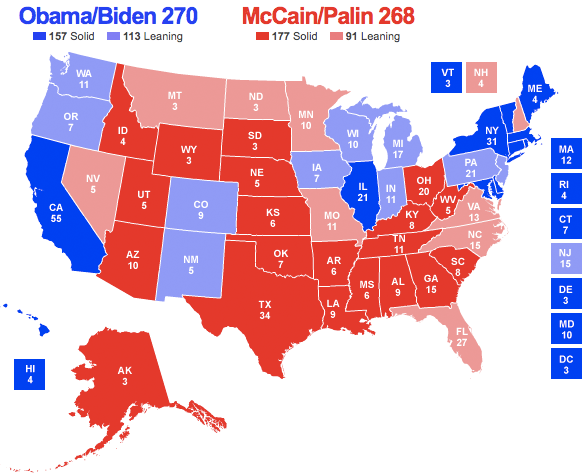As surprising as it sounds, I’ve been paying attention to what the numerous presidential candidates have been saying recently. This is surprising not only because I’m usually of the opinion that politics is balderdash and the elections under discussion are well over a year away, but also because I’m not a citizen of this country; my opinions don’t matter and the election’s outcome is of little consequence to me.
I don’t recall paying any attention to politics back home, but that’s probably because I didn’t live there long enough after turning old enough to vote. And often times, arguments about things I don’t care about were made in languages I don’t understand… or care about.
Anyway, returning to the U.S., what baffles me about the state of affairs here is how the system still manages to hold onto a (predominantly) bipartisan system, especially when there are so many issues worth arguing over. One would assume that these differing opinions, principles, ideas… would soon spawn a multitude of parties. At least, definitely more than two major groups. I mean, even if you just looked at the “hot-button” issues, there’s a good chance your views won’t align perfectly with one party or the other. How then do you make a choice? Why then would you?
Let me put things in concrete terms here. If, hypothetically, I had a vote that mattered, I still wouldn’t know who to vote for (or even see the point in voting), because on certain issues, my views line up with the Democratic party and on others, they match the Republican party. For instance:
I believe that the country ought to be fenced, and all business should be conducted only in English—forcing everyone inside to learn the language. I also believe people who’ve entered unlawfully, or outsiders who are generally a thorn in your sight, ought to be booted out. The last thing any country needs is an erosion of its culture.
I believe that the Iraq war is unjust, and puts a tremendous undue burden on the country. It’s not the U.S.’s problem if Iraq falls apart—does anyone really give a fuck?—they have to cut their losses and retreat as soon as possible, saving money and lives.
There is no war on terrorism, it’s a bumper-sticker slogan designed to distract the public from real problems, and an umbrella under which to silently erode human rights. From illegal wire-tapping, to the PATRIOT act, to secret prisons in Guantanamo Bay, you know things have gone too far. The people we’re supposed to be fearing are not as technically-sophisticated as the fear-mongers and war-mongers would like us to believe. Iran and nuclear warheads? Hah! How old is their nuclear science program again?
I believe in tax-cuts for the richest portion of the populace. They’ve worked hard to get where they are today, and they’ve done a lot of good for society during their ascent, like creating a ton of jobs for the middle-class. They deserve to enjoy the fruit of their labours. Besides, I fully intend on being one of these rich folk and enjoying myself some day; I’ve worked at it long enough, and the last thing I need is 40% of my income being taxed away to help someone else.
I believe in science, and that theology has no place in science classrooms. Humans evolved from apes as apes did so from their predecessors. It’s the way it is, and did not require the “hand of god.” Evolution is not a “theory,” it’s a fact. Global warming is not a “theory,” it’s a fact. Study of human embryos is not “killing innocent babies,” it’s exploratory science; science that will help you some day. Lumping all that you don’t understand under the actions of the “glorious hand of god” is the reason why this country is so anti-intellectual. And the reason why this trend has to be reversed, if the U.S. wants to compete, technologically, in today’s global economy.
I don’t believe in social programs like “universal health care” for all, because I know all this means is that the rich will be made to pay for it, while the poor will just sit down and reap all the benefits. That’s not fair. If you want your medicines, pay for it like everyone else. Or move to Canada.
This does not mean I don’t believe in helping my fellow man (or woman). By all means, support an orphan or three. I just don’t believe mandating it through taxation and social programs is the right way of going about it.
I believe that sexual preferences play no role in determining how good a person you are, and that gay people should have the right to marry and enjoy all the benefits married couples enjoy. Where one sticks their penis is their own business, and besides, is there anyone out there that doesn’t find the concept of two women naked together hot? Remember people, gay people includes lesbians too.
In fact, I strongly oppose affirmative action, favour vaccinating girls against cervical cancer so they can have safer sex, favour the death penalty, favour strict gun control, support a woman’s right to abort her foetus, if she’s talked to the father about it.
So, what could I do? What does everyone do?
Apart from starting their own party and declaring themselves a candidate… only to be later lambasted as a “spoiler” in the race, of course.
Update: Some of the comments below, originally published under a public domain licence, are reproduced from digg.com.
